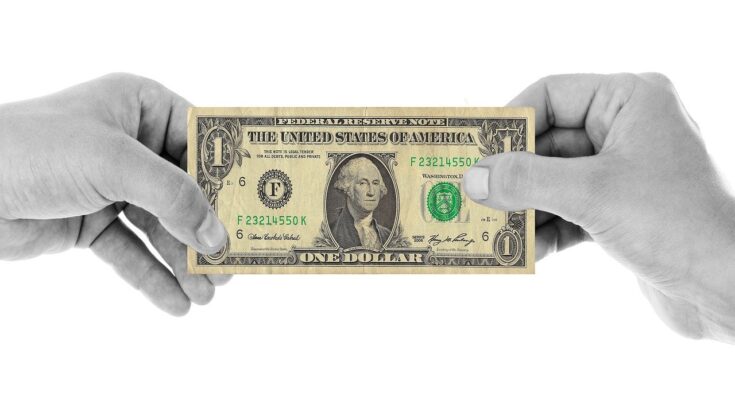ZonaJakarta – We’ve all heard the phrase “save for a rainy day,” but let’s be honest—most of us don’t expect the storm to roll in anytime soon. Until, of course, it does.
Whether it’s an unexpected job loss, a medical scare, or your car breaking down on the way to work, life has a funny way of delivering surprises when we least expect them.
The real question isn’t if something will go wrong—it’s when. And more importantly, will you be ready when it does?
That’s where emergency savings come in. They might not be as exciting as investing in crypto, buying stocks, or planning a dream vacation, but having a financial cushion is one of the most crucial—and often overlooked—steps in building real-life financial stability.
So, let’s dive deeper. What makes emergency savings so essential? Why are so many financial planners urging people—especially young adults and new professionals—to prioritize it above all else? And how can you start building one today, even if your paycheck feels like it’s already stretched thin?
The Financial Lifeline You Didn’t Know You Needed
Imagine this: You’re going about your life, bills paid, groceries in the fridge, maybe even a little in your checking account for the weekend. Then one email changes everything—your job is being terminated. Or your wisdom tooth flares up and needs immediate (and expensive) dental surgery. Or worse, your mom calls with a family emergency that requires immediate travel.
When life throws these curveballs, most people only have two choices: dip into high-interest credit cards or scramble to borrow from friends and family. Both options can work temporarily—but they also come with stress, guilt, and long-term consequences.
An emergency fund, even a small one, changes the entire tone of the situation. Suddenly, you have options. You can handle the surprise without spiraling into panic or falling into debt. That money becomes your buffer between crisis and chaos.
Layoffs, Cut Hours, and the Fragility of Income
One of the most common emergencies in recent years is job insecurity. Even solid positions with stable companies can disappear with a single downturn or restructuring decision.
In fact, as the global economy fluctuates and industries get disrupted, layoffs and hour cuts have become a regular part of working life—even for the best performers.
Emergency savings allow you to land on your feet, rather than in free fall. With enough saved to cover a few months of rent, food, transportation, and health insurance, you get time. Time to think. Time to job hunt. Time to avoid making desperate decisions just to keep the lights on.
It’s not just about surviving—it’s about maintaining your dignity and mental well-being during uncertain times.
Medical Emergencies and the Brutal Reality of Out-of-Pocket Costs
Even with health insurance, one trip to the emergency room or an unexpected diagnosis can derail your finances. Deductibles, co-pays, prescription costs, and follow-up treatments add up—fast. A single surgery could mean thousands of dollars out of pocket, not to mention time off work.
Without an emergency fund, you might find yourself choosing between your health and your financial stability. That’s a choice no one should have to make. But it’s a reality for many Americans, particularly those living paycheck to paycheck.
An emergency fund ensures that when health becomes your priority, money doesn’t become your biggest concern.
Car Trouble, Appliance Repairs, and All Those “Little” Disasters
Let’s not forget the everyday emergencies—the ones that feel minor but hit your wallet hard. Your car battery dies. Your water heater gives out in winter. Your laptop crashes the night before an important presentation. Your pet eats something it shouldn’t.
Individually, these aren’t life-shattering. But they’re inconvenient, urgent, and expensive. And without emergency savings, they can quickly snowball into debt.
But with even a small cushion of $500 to $1,000, you could handle the problem, solve it on the spot, and carry on with your life—with your stress levels intact.
The Real Cost of Borrowing: High-Interest Debt
Let’s be real—credit cards can be useful in emergencies. But they’re also expensive. Most come with interest rates north of 20%, and the longer you carry that balance, the deeper the financial hole becomes.
Without an emergency fund, you risk turning a $300 car repair into a $600 burden after fees and interest. Multiply that across a year of small crises, and suddenly your “safety net” becomes a cycle of debt that drains your income long after the emergency has passed.
Emergency savings act as your firewall against that pattern. When something goes wrong, you pay in cash—not credit.
Financial Peace = Emotional Peace
One of the most underrated benefits of having emergency savings is the sense of calm it brings. Knowing that you have a plan—a backup, a buffer, a safety net—reduces anxiety. It brings a quiet confidence that you can handle whatever life throws at you.
In a world where inflation is rising, prices fluctuate, and personal responsibilities feel heavier than ever, peace of mind is a priceless asset. And unlike expensive therapy or elaborate self-care routines, this kind of peace can be built one dollar at a time.
How Much Do You Really Need?
There’s no one-size-fits-all answer, but most financial advisors recommend aiming for three to six months’ worth of essential expenses. That includes rent or mortgage, groceries, utilities, transportation, and insurance.
But don’t let that number intimidate you. If you’re just starting out, aim for your first $500. Then $1,000. Build it like a muscle—small, steady contributions add up over time.
Set up an automatic transfer from your checking to a high-yield savings account. Treat it like a non-negotiable bill. And when you’re tempted to spend that extra cash? Remember: Future You might really need it.
Final Thoughts: It’s Not Just Smart—It’s Essential
Emergency savings aren’t just for “financially responsible” people or high earners. They’re for everyone who wants to take control of their life—who wants to feel secure, not scared, when life throws a punch.
It’s not about fearing the future. It’s about being ready for it.
Because the truth is, when the unexpected arrives (and it will), your emergency fund won’t just save your bank account—it might just save your peace, your pride, and your future. (*)




